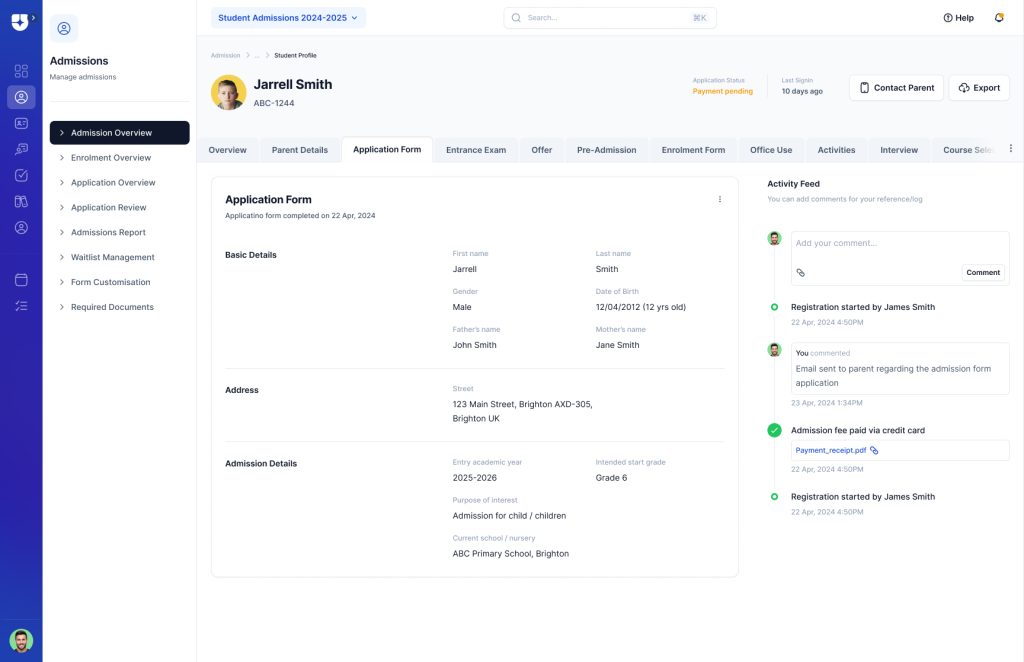The importance of parental involvement in schools
Parental involvement in schools isn’t just a nice-to-have; it’s a necessity. Schools thrive when parents actively engage in their children’s education, whether through volunteering, attending events, or supporting academic efforts at home.
Why parent participation matters for school success
Active parental involvement translates to better academic performance, improved attendance, and a stronger sense of community. When parents are engaged, students are more likely to feel supported, leading to better focus and higher achievement. The effects of this are not limited to academics either—students with involved parents tend to develop better social skills and adapt more easily to school environments.
Impact of engaged parents on student outcomes
Research consistently shows that students with engaged parents are more motivated, achieve higher test scores, and have better behaviour in class. Beyond the numbers, schools with higher parental involvement see stronger community ties and more meaningful relationships between staff and families.
Studies highlighting the benefits of involved parents
Several studies, including reports by the National Education Association (NEA), indicate that children with engaged parents are 25% more likely to graduate high school. These studies underline the undeniable role that parents play in student success.
How to encourage parents to get involved?
Promoting parental involvement requires intentional effort. Schools need to provide accessible opportunities for parents to engage, even if they have busy schedules or face language barriers.
Open and transparent communication
One of the easiest ways to encourage involvement is through clear, consistent communication. Schools should ensure that parents are always informed about school activities and opportunities to participate.
Establishing multiple communication channels
Offering different communication platforms, such as emails, newsletters, mobile apps, and social media, ensures that every parent, no matter their preference, stays informed. Some parents might respond better to text messages or phone calls, so it’s essential to provide diverse options.
Using parent-teacher conferences effectively
Parent-teacher conferences are an excellent way to engage parents directly. Schools can utilize these meetings to discuss student progress while offering guidance on how parents can assist at home.

Create a welcoming school environment
Parents are more likely to engage when they feel comfortable at the school. Creating a welcoming and inclusive environment is key.
Making parents feel valued and appreciated
Regularly thanking and acknowledging the contributions of parents can go a long way. It’s important to show appreciation, whether through newsletters, public shoutouts, or end-of-year celebrations.
Offering flexible volunteer opportunities
Parents have busy lives. Offering flexible volunteer opportunities that fit various schedules increases the likelihood of participation. This could mean providing weekend events or virtual options for parents who can’t attend in person.

10 proven tips to maximize parental involvement
Here are ten tried-and-true strategies to foster parental involvement in your school:
1. Leverage digital platforms for easy access
In today’s digital age, many parents prefer to engage through online platforms. Use school apps or websites to share event schedules, updates, and volunteer opportunities.
2. Organize family-oriented school events
Events such as family game nights or multicultural fairs not only bring families together but also strengthen the connection between parents and schools.
3. Foster parent-teacher collaboration
Encourage regular communication through meetings or dedicated communication channels.
4. Provide regular updates on student progress
Keeping parents informed through weekly reports or online gradebooks ensures that they are always up to date on their child’s progress, increasing engagement.
5. Host workshops and learning sessions for parents
Offer workshops on parenting skills, helping with homework, or understanding the curriculum to make parents feel more capable of assisting their children.
6. Use incentives to boost participation
Schools can use small incentives like raffles, certificates, or even thank-you gifts to encourage higher parental participation rates.
7. Encourage parent-led initiatives
Allow parents to take the lead on events or school programs. Parent-led initiatives, like fundraising drives or community outreach, foster deeper engagement.
8. Provide training for parent volunteers
Some parents may be hesitant to get involved because they feel unprepared. Offering simple training can remove this barrier, giving them the confidence to participate.
9. Celebrate parental contributions publicly
Recognize and celebrate parental efforts in public forums, like assemblies or newsletters. Public acknowledgment not only boosts morale but encourages others to participate.
10. Foster collaboration between teachers and parents
Teachers should consistently reach out to parents for input and ideas. By forming a team around the student, both teachers and parents can work together to support learning.
Overcoming common challenges to parental involvement
There are inevitable hurdles, but schools can navigate them with thoughtful strategies.
Time constraints for working parents
Offer virtual volunteer opportunities or flexible event times to accommodate working parents’ schedules.
Language barriers and cultural differences
Translate materials into various languages and offer multilingual staff to assist parents in navigating the school system.
Addressing feelings of intimidation or disconnection
Ensure parents feel welcome by offering small group meetings and providing information on school processes.
The role of teachers and administrators in promoting parental involvement
Both teachers and administrators have vital roles in fostering parental engagement.
Teachers as key connectors
Teachers can act as bridges, building strong relationships with parents and guiding them in supporting their children’s education.

Administrator support and leadership
School leaders set the tone for parental involvement. By actively promoting and supporting engagement initiatives, administrators can cultivate a school-wide culture of involvement.
Conclusion: A collaborative path to school success
When parents, teachers, and administrators work together, the result is a thriving school environment. By implementing these strategies, schools can maximize parental involvement, leading to better student outcomes and a stronger community.
FAQs
1. How do you promote parental involvement?
Promote parental involvement by maintaining clear communication through multiple channels, hosting inclusive events, offering flexible volunteer options, involving parents in decision-making, and recognizing their contributions. Creating a welcoming environment and addressing barriers like time constraints or language differences also fosters engagement.
2. How can schools engage parents who are too busy to volunteer?
Schools can offer flexible volunteer opportunities, such as virtual involvement or weekend events.
3. What are some strategies for involving non-English-speaking parents?
Translate communication materials, hire bilingual staff, and offer meetings in multiple languages to bridge the language gap.
4. How can schools measure the effectiveness of parental involvement?
Schools can track attendance at events, survey parents on engagement efforts, and monitor improvements in student outcomes.
5. What role do teachers play in increasing parental involvement?
Teachers act as connectors, fostering relationships with parents and providing opportunities for engagement in student learning.
6. How can schools overcome challenges in involving parents from diverse backgrounds?
Offer culturally inclusive events, provide language support, and create welcoming spaces that celebrate diversity.

